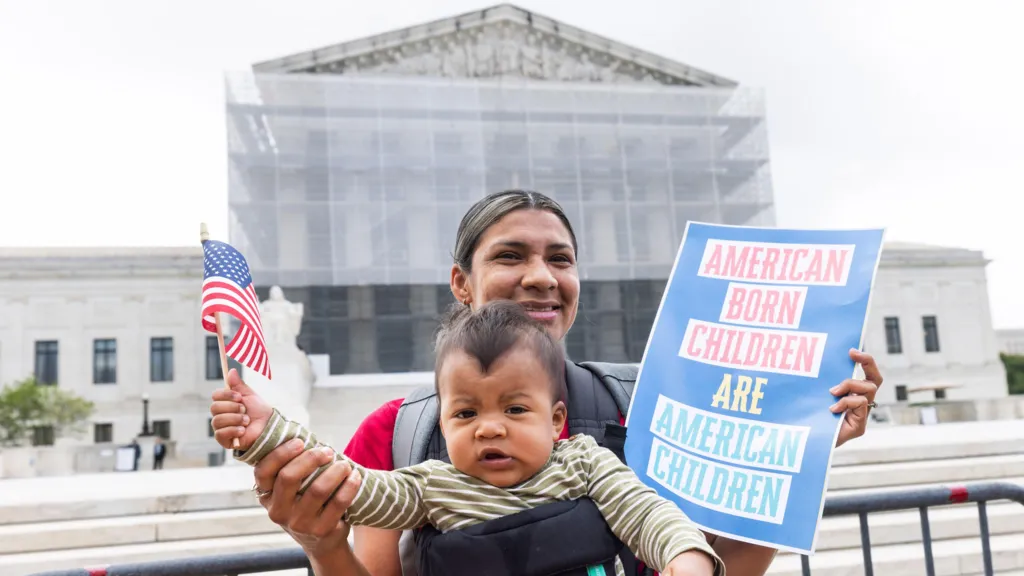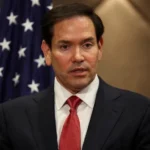
US President Donald Trump brought his battle against birthright citizenship to the Supreme Court Thursday, in a case that could significantly expand presidential powers and reshape immigration policy.
The central question before the justices is whether lower court judges should have the authority to block presidential orders nationwide—a power that has temporarily halted Trump’s attempt to end automatic citizenship for children of undocumented immigrants. The Supreme Court’s decision could determine how effectively Trump can implement his agenda through executive actions with limited judicial oversight.
During the two-hour hearing, US Solicitor General D. John Sauer argued that lower courts exceeded their authority by issuing nationwide injunctions against the citizenship order. He claimed the current system forces judges to make “rushed, high-stakes, low-information decisions” and suggested class-action lawsuits as an alternative, though opponents noted this process is time-consuming and inadequate for emergencies.
Liberal Justice Elena Kagan pointed out that the administration had lost on the birthright citizenship issue in every lower court, asking: “Why would you ever take this case to us?” Justice Sonia Sotomayor drew a comparison to gun rights, suggesting that if the court sided with Trump, a future administration could confiscate guns without judicial intervention.
Conservative Justice Samuel Alito expressed skepticism about lower courts’ nationwide injunction powers, noting “sometimes they’re wrong” and suggesting some judges suffer from “an occupational disease” of thinking “I can do whatever I want.”
New Jersey Solicitor General Jeremy Feigenbaum, representing states opposing the order, warned that eliminating nationwide injunctions would create a chaotic “patchwork citizenship system” where individuals could have citizenship in one state but lose it when crossing state lines, affecting government benefits, immigration enforcement, and statistical records.
“Since the 14th Amendment, our country has never allowed American citizenship to vary based on the state in which someone resides,” Feigenbaum argued.
Outside the court, protesters gathered against Trump’s immigration policies, joined by former House Speaker Nancy Pelosi, who read from the Constitution and declared: “This is about birthright, it’s about citizenship, it’s about due process.”
The 14th Amendment states that “all persons born or naturalized in the United States, and subject to the jurisdiction thereof, are citizens.” Trump argues the phrase “jurisdiction thereof” excludes children of undocumented immigrants or temporary residents—an interpretation rejected by federal judges in Maryland, Massachusetts and Washington who issued nationwide injunctions blocking the order.
The administration wants the Supreme Court to rule that injunctions can only apply to immigrants named in specific cases or plaintiff states, allowing partial implementation of Trump’s order during ongoing litigation.
Many legal experts maintain that birthright citizenship is constitutionally guaranteed. Immigration lawyer Alex Cuic warned that ending it could force many children to become undocumented or “stateless,” as “there’s no guarantee that the countries where their parents are from would take them back.”
The Supreme Court, with three Trump appointees among its conservative majority, has not indicated a timeline for its ruling.












Be the first to leave a comment